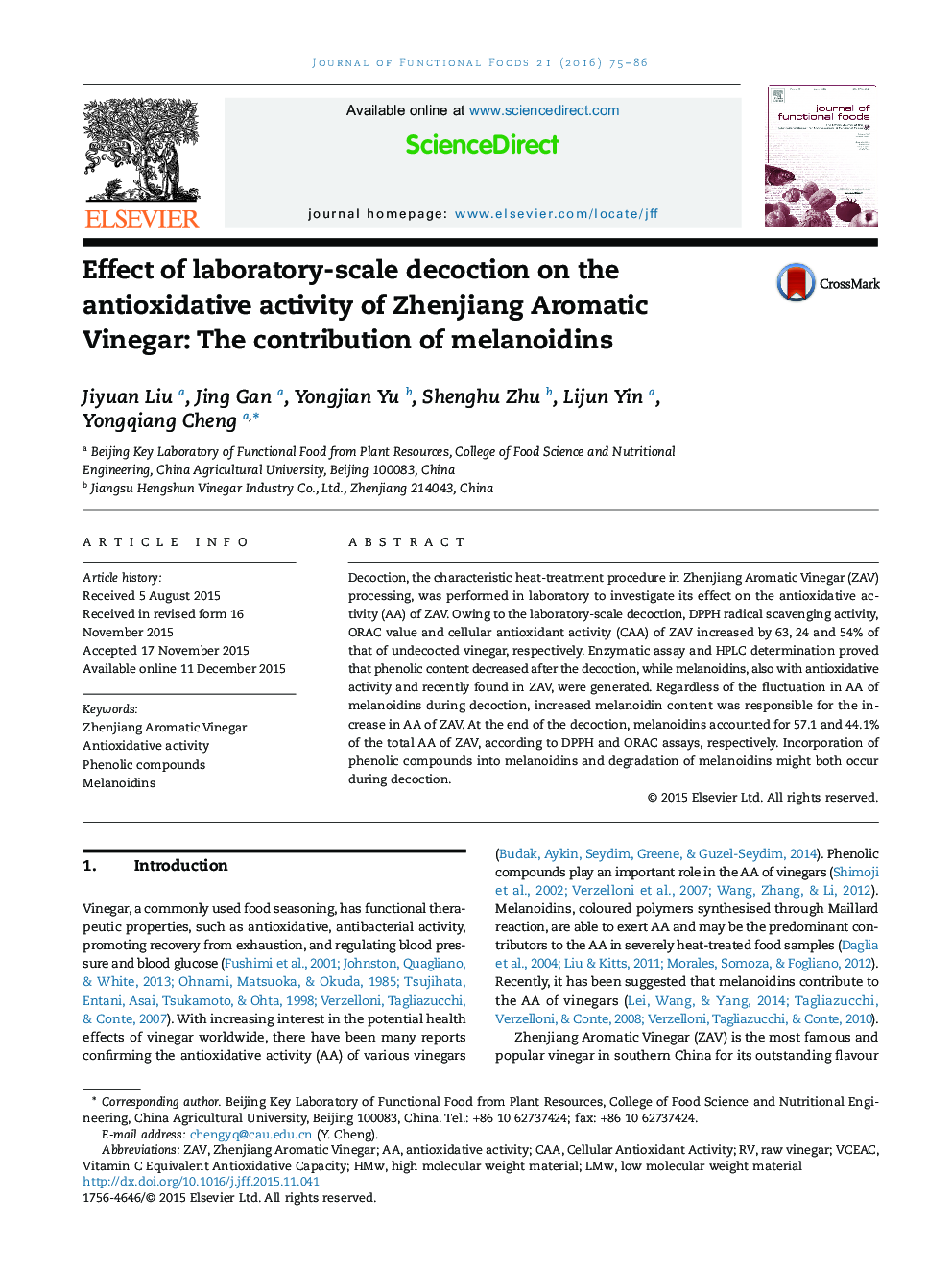| کد مقاله | کد نشریه | سال انتشار | مقاله انگلیسی | نسخه تمام متن |
|---|---|---|---|---|
| 1220145 | 1494545 | 2016 | 12 صفحه PDF | دانلود رایگان |

• Laboratory-scale decoction increased the antioxidative activity (AA) of Zhenjiang Aromatic Vinegar (ZAV).
• Melanoidins were generated during the decoction, while phenolic content decreased.
• Production of melanoidins during decoction was the main contributor to the AA of ZAV.
• Incorporation of phenolic compounds into melanoidins and degradation of melanoidins might both occur during decoction.
Decoction, the characteristic heat-treatment procedure in Zhenjiang Aromatic Vinegar (ZAV) processing, was performed in laboratory to investigate its effect on the antioxidative activity (AA) of ZAV. Owing to the laboratory-scale decoction, DPPH radical scavenging activity, ORAC value and cellular antioxidant activity (CAA) of ZAV increased by 63, 24 and 54% of that of undecocted vinegar, respectively. Enzymatic assay and HPLC determination proved that phenolic content decreased after the decoction, while melanoidins, also with antioxidative activity and recently found in ZAV, were generated. Regardless of the fluctuation in AA of melanoidins during decoction, increased melanoidin content was responsible for the increase in AA of ZAV. At the end of the decoction, melanoidins accounted for 57.1 and 44.1% of the total AA of ZAV, according to DPPH and ORAC assays, respectively. Incorporation of phenolic compounds into melanoidins and degradation of melanoidins might both occur during decoction.
Journal: Journal of Functional Foods - Volume 21, March 2016, Pages 75–86